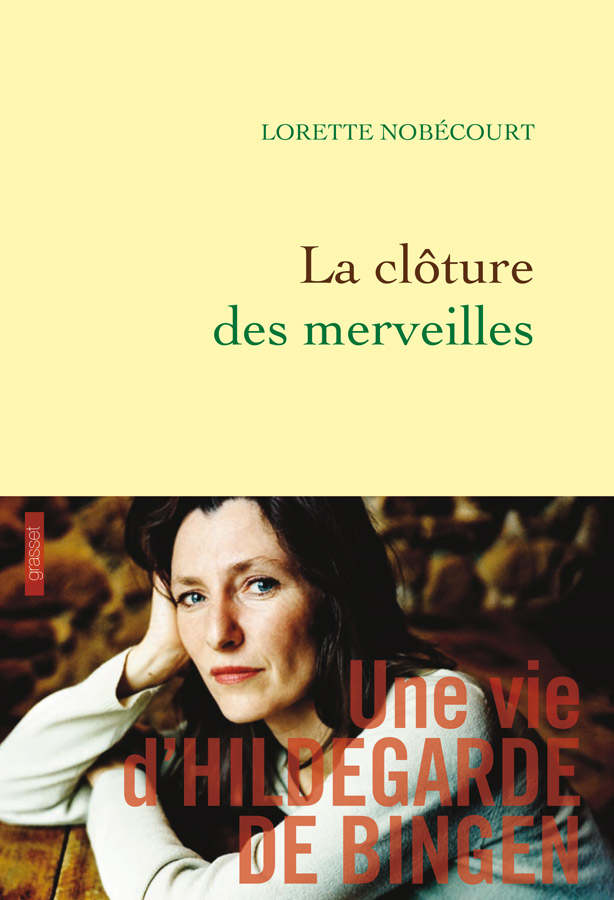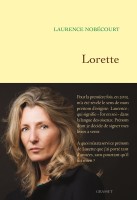
Wonder Septum
Grasset, 2013 - Under the name of Lorette Nobécourt
Traduction de Narjisse Moumna
Incipit
Hildegarde de Bingen belongs to what I have been given/inherited from a far away past that precedes all the existing pasts. I’ve known her in an elsewhere whose memory I get only riddled with holes, as the partitions of time, being disjointed by a certain amount of silence, crack and half-open up. She’s been accompanying me unheeded by my memory, and has all-pervaded me quite unawares. Neither a nun nor a laywoman, I belong to her septum. And what a bliss to write about what you love! The topic being not Hildegarde herself, but rather her testimonies, and which my entire life has no ambition except testifying to. As a child, that is what I loved most about the Saints without being able to name it : their insubordination. Thus never could darkness extinguish the Light.
Back cover
The nun Hildegarde de Bingen marked her time (the twelfth century), and it is not because of her writings, her legend, or her scientific or botanical lore that the abbess proved the perfect subject for Laurence Nobécourt (to write about), but because of the radical insubordination where she stands, firmly planted.
The novelist doesn’t intend, revisiting such a figure, to celebrate the fourth female physician of the Church, as much as to proclaim it loud that the only life that counts is dear lively life.
She serves the word thus offering herself as Hildegarde’s mouthpiece and invite us to dare to enter Wonder Septum.

